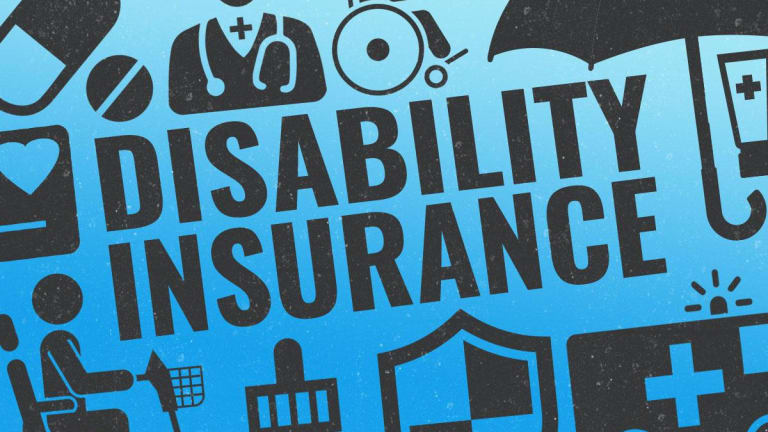Insurance
Everything You Need to Know About Travel Insurance
Whether you’re planning a vacay abroad or a weekend getaway across state lines, travel insurance is an important consideration. One medical emergency, lost bag, or trip cancellation away from financial disaster, travel insurance provides crucial protection for your travel investments and peace of mind while exploring new places.
In this comprehensive guide, we’ll cover everything you need to know about travel insurance including what it covers, how it works, types of policies available, getting a quote, and more. By the end, you’ll have a thorough understanding of this crucial travel protection and how to utilize it effectively.
What is Travel Insurance?
At its core, travel insurance is a type of insurance that protects your trip costs and expenses in the event of unforeseen circumstances like illness, trip cancellation/interruption, lost/damaged baggage, emergency evacuation, and more. It reimburses covered expenses related to qualifying incidents that disrupt your travels or cause financial losses.
Travel insurance differs from traditional property/health insurance in that it covers risks specifically associated with being away from home. While your regular insurer may provide some travel benefits, dedicated travel policies offer broader protection tailored for transportation, accommodations, activities, and emergencies while traveling.
Premiums typically cost 4-10% of your total trip costs. So travel insurance for a $5,000 vacation would cost around $200-500 depending on your age, destination risk levels, and policy details. Comprehensive policies bundle multiple coverage types while a la carte options let you customize protection.
Understanding Travel Insurance
Now that we’ve defined travel insurance at a high level, let’s dive deeper into key aspects of how it works:
- Primary vs Secondary Coverage – Primary coverage means the travel insurer handles your claim directly. Secondary means you file through other applicable insurances first like auto or renters.
- Coverage Requirements – Make sure any claim qualifies under the policy’s covered causes and that you meet eligibility rules.
- Policy Limits – Maximum payout amounts for things like medical expenses or lost bag contents. Receipts may be required for higher-valued items.
- Deductibles – The amount you pay out of pocket before insurance kicks in. Higher deductibles lower your premium.
- Exclusions – Common reasons claims can be denied like preexisting conditions, dangerous activities, criminal acts, etc.
- Effective Dates – Coverage windows that align with your trip itinerary and payment timelines.
Thoroughly reviewing all terms gives clarity on what’s protected versus excluded from reimbursement.
How Travel Insurance Works
Here are the basic steps when utilizing travel insurance:
- Purchase a Policy – Buy directly from insurers, travel agents or online when making travel arrangements. Purchase window requirements vary.
- Trip Preparation – Register travel plans with the U.S. government if needed. Retain proof of payments, medical records.
- Trip Interruption – Contact the insurer immediately if cancelling or altering plans due to a covered reason.
- File a Claim – Report incidents promptly per the policy. Submit required documentation of expenses, losses and trip interruption details.
- Claim Resolution – Insurers have timelines to process and cover eligible costs according to the contract terms.
- Get Assistance – 24/7 support helplines can provide emergency help arranging medical care, lost documents replacement and other urgent needs.
Have your policy and ID details ready if needing fast insurance assistance or reimbursement while traveling.
Types of Travel Insurance Coverage
Here are the main categories of protection travel insurance policies provide:
- Trip Cancellation/Interruption – Cost reimbursement if canceling or altering travel plans due to covered reasons like illness or severe weather
- Medical/Dental Expenses – Pays for treatment and hospitalization costs if injured or sick abroad
- Emergency Medical Evacuation – Arranges and covers emergency transport back home or to quality care
- Baggage Loss/Damage – Replaces lost, stolen or damaged personal items and travel documents
- Travel Accident/Death – Lump sum payout for accidental injury or death during trips
- Trip Delay – Covers additional accommodations if delayed due to transportation issues
Comprehensive policies bundle these while also offering specialized add-ons like activity, wedding or pet coverage riders.
Trip Cancellation and Interruption Insurance
This crucial coverage reimburses non-refundable trip costs if needing to cancel or alter plans due to a covered cause prior to departure (cancellation) or during travel (interruption).
Common covered triggers include:
- Sickness, injury or death of the traveler or travel companions
- Inclement weather preventing travel to/from locations
- Natural disasters at the destination
- Jury duty summons or subpoena compelling legal obligations
- Terrorism incidents rendering a location unsafe
- Military service obligations
- Employment termination or transfers
Most pay a portion of trip expenses like transportation, accommodations and activities. Cancel For Any Reason (CFAR) options provide broader flexibility but carry a higher premium.
Be sure to contact the insurer promptly upon any qualifying cancel/interrupt event and retain proof like medical records. Reimbursement percentages scale based on trip cost notification timing.
Medical Insurance for Travel
Getting sick or injured abroad brings unforeseen expenses on top of health worries. Travel medical insurance covers:
- Doctor visits and medical treatments
- Hospitalization costs
- Prescription drugs obtained outside of the U.S.
- Mental health and dental issues treatments
Policies typically cover a minimum of $50,000 in emergency medical costs and last 30-180 days depending on trip length. Comprehensive major medical policies cover an entire year for longer term travelers or expats.
Unlike domestic health plans, international medical plans often provide evacuate or repatriation services, flying you to quality care or back home for treatment. This benefits saves enormous evacuation airfare bills.
Check if existing domestic insurance extends overseas before purchasing an international travel medical plan. But medical evacuations are rarely covered otherwise.
Emergency Medical Evacuation Coverage
Transporting a seriously sick or injured traveler long distances for advanced treatment carries astronomical costs, easily surpassing $100,000 without insurance arranging and covering the needs.
Emergency evacuation insurance protects this risk by including:
- Emergency medical transport to hospitals, repatriation flights home
- Coordination of intensive care ground and air ambulances
- Medical escorts like doctors and nurses accompanying patients
- Repatriation of mortal remains if death occurs overseas
Quality insurers provide 24/7 emergency response teams ready to dispatch help at a moment’s notice from anywhere globally. Having this safety net eliminates medical evacuation debts that can financially ruin families.
Baggage Loss, Damage or Delay Coverage
Few travel hassles compare to lost luggage stranded far from home. Baggage insurance reimburses:
- Belongings damaged or destroyed in transit or while traveling
- Out-of-pocket replacement costs for items lost by airlines/transporters
- Emergency purchases if baggage delayed more than 12+ hours
Coverage amounts typically extend several hundred dollars per bag and item, requiring receipts for expensive electronics or jewelry. Delivery verification helps protect against fraudulent claims too.
Airlines are usually responsible for baggage issues, but carriers limit reimbursement to depreciated values. Deductibles may apply. Travel insurance provides financial protection on top of carrier compensation.
Travel Accident and Disability Coverage
Worst-case scenarios happen despite precautions. Travel accident insurance pays in the tragic events of:
- Accidental death while traveling
- Permanent disabilities impairing mobility or activities of daily living
- Specific injuries like lost limbs, paralysis or loss of senses
Payouts range from $25,000 to $1,000,000 depending on the policy or rider type. Death benefits go to your designated beneficiaries to offset funeral/end-of-life costs without life insurance in place.
Some policies differentiate air carrier incidents from other modes of travel or general accidents. Review coverage amounts and what qualifies to ensure adequate risk protection throughout any trip.
Other Specialty Travel Coverage Types
While the above umbrella most travel risks, additional innovative policy options exist for niche activities or situations:
- Trip Delay – Covers meals and lodging if transportation delays strand travelers en route
- Rental Car Protection – Collision damage waivers or liability protection for rentals
- Lost Documents Replacement – Assists replacing passports or visas if lost/stolen
- Travel Legal Assistance – Lawyer referrals or cash bonds for travel-related arrests
- Business Travel – Extra coverage needs for work trips
- Pet Boarding Illness – Covers vet bills if furry companions get sick while boarding
Policies adapt innovation to insure unique travel segments or specialist interests and hobbies.
Comparing Travel Insurance Quotes
Now that the core aspects are clear, getting accurate rate quotes allows comparing policies across carriers. Information needed includes:
- Trip Costs – Providing budget estimates for flights, accommodations, activities and more allows insurers to price coverage correctly. Underestimating risks underinsured protection.
- Destinations – Locales come with varying security, medical and legal risks affecting premiums. Developed countries enjoy lower rates.
- Dates of Travel – Longer duration vacations or full-time expat living incur higher costs. Quote for the exact travel windows.
- Coverage Amounts – Medical maximums, baggage limits and liability caps impact pricing. Adjust as needed for adequate budget planning.
- Medical History – Preexisting conditions can either raise rates or disqualify altogether depending on the policy’s terms. Disclose accurately.
- Age – Like health insurance, premiums increase with the applicant’s age. Youth often secure significant discounts.
- Additional Riders – Specialty add-ons for activities or properties alter rates, so include what exact protections sought.
Compare at least 3-5 quotes factoring in payment terms, company reputation, and user reviews before committing. Prices vary dramatically so diligent shopping pays off. Consider bundling it with other travel purchases for aggregate savings too.
Special deals exist for multi-trip annual plans, travel credit cards, professional memberships and loyalty programs. Inquire what partnership discounts apply or try promo codes online. Now on to purchasing the winning policy!







